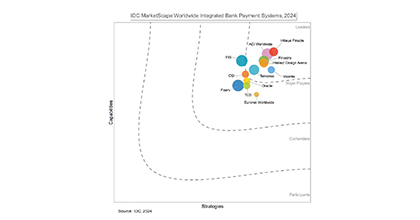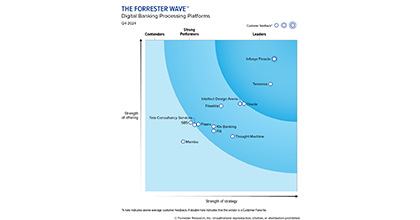Corporate banking stands at the brink of a significant transformation, with nearly 60% of banks projected to revamp their business models by 2026.
This shift is driven by several key factors, including increasing customer expectations, new financial services ecosystems, high adoption of digital technologies, and evolving regulations. In this dynamic landscape, virtual accounts have emerged as a key enabler for driving business model innovation.
The Role of Virtual Accounts in Business Model Innovation
Virtual accounts allow businesses to manage multiple sub-accounts under a single master account, offering unparalleled visibility and control over funds. This flexibility supports the rapid scaling of new services, seamless integration with digital platforms, and real-time tracking of funds, making virtual accounts indispensable in today’s corporate banking environment.
Here’s how virtual accounts are enabling business model innovation and why they are crucial for the future of corporate banking:
- Digital-only Banks
Digital-only banks have redefined the banking experience by delivering services exclusively through digital channels. Virtual accounts enhance digital banks’ operational efficiency by allowing businesses to manage multiple sub-accounts under one master account, streamlining cash flow tracking without the need for physical branches. They offer customized financial services, tailoring accounts for specific business functions like payroll or vendor payments. Additionally, virtual accounts integrate seamlessly with digital banking platforms and ERP systems, improving the overall user experience.
- Banking as a Service (BaaS)
The global BaaS market is expected to grow at a CAGR of over 17% between 2024 and 2032. While this is across banking segments, corporate banking will see a proportion of this growth. BaaS providers can simplify account management by enabling corporate clients to create and manage virtual accounts, seamlessly embedding banking services into business processes. These accounts offer enhanced financial control by allowing businesses to allocate funds for specific purposes, improving visibility and oversight. Additionally, virtual accounts help maintain regulatory compliance by segregating funds without the need for multiple physical accounts.
- Embedded Finance Players
Virtual accounts empower embedded finance players by enabling instant account setup and management, accelerating the adoption of financial services within enterprise platforms. These accounts generate detailed data, allowing for personalized financial products like tailored lending solutions. Moreover, virtual accounts optimize cash management by allowing businesses to allocate funds for specific needs, such as receivables and payables, directly within the embedded finance ecosystem.
- Financial Marketplaces
The financial marketplace sector is growing rapidly, allowing corporate clients to choose a range of financial products from multiple banks and regulated institutions. Virtual accounts allow financial marketplaces to provide businesses with a unified view of their financial activities across multiple providers, enabling efficient management of products like loans and investments through dedicated accounts. They streamline fund transfers within the marketplace, reducing complexity and time delays. Further, virtual accounts enhance the user experience by offering a platform for managing various financial relationships in one place.
- Non-Financial Marketplaces
The global non-financial marketplace sector is also expanding with virtual accounts enabling these platforms to enable seamless management of payments, invoicing, and other financial transactions alongside non-financial services. These accounts simplify billing by facilitating dedicated payment channels for various services, such as logistics or software, while offering enhanced financial control. Additionally, virtual accounts allow for customizable financial solutions, such as setting up specific accounts for different departments or business units.
- Industry Utilities
Industry utilities offer a suite of non-differentiating services, benchmarks key business processes, and delivers enhanced efficiencies. Industry utilities can leverage virtual accounts to centralize fund management for back-office processes, improving efficiency and transparency. This approach reduces costs by eliminating the need for multiple physical accounts, streamlining financial operations. Furthermore, virtual accounts provide a scalable solution, allowing industry utilities to expand services across different entities and jurisdictions with a standardized approach.
- Digital Specialist Services
Digital specialist services offer specialized digital banking solutions, powered by new-age technologies such as AI/ML, RPA, APIs and more. Using virtual accounts, they can offer targeted financial products tailored to specific business needs, like payments or investments, enhancing their value proposition. These accounts can be integrated with digital tools such as AI-driven analytics and automation platforms, providing a comprehensive financial management solution. Additionally, virtual accounts improve client engagement by offering customized solutions that cater to the unique needs of various customer segments, such as SMEs and startups.
- SME-Focused Players
The SME-focused financial services market is expected to grow with virtual accounts playing a key role in simplifying financial management for SMEs. Virtual accounts enable easy setup of multiple accounts for different purposes like expense tracking and revenue management, without complex banking relationships. They also enhance credit management, allowing flexible credit solutions with funds allocated to specific virtual accounts. Additionally, virtual accounts offer SME-focused players cost-effective banking solutions tailored to small businesses, including simplified account setup and management.
Business model innovation with virtual accounts in action
Focusing on BaaS and Embedded Finance, much of the value proposition relies on third parties being able to offer bank account and payment services to their customers. The ability for third parties that are not licensed banks to operate accounts on behalf of those customers relies on some form of sub-ledger or virtual account relationship with a licensed and regulated bank.
Typically, this means that a physical account for the fintech/third party partner sits at the bank, and the partner has the ability to manage transactions from virtual accounts. Sometimes this capability is known as “for benefit of” (FBO) accounting. The physical account is for the benefit of the partner’s business.
Here are examples of some global banks that are leveraging virtual accounts to power business model innovation:
- Goldman Sachs TxB platform, built on a modern core banking technology stack, offers virtual account capability exposed to their partner clients. Goldman Sachs deploys an advisory team to support partner onboarding of BaaS offerings, ensuring an optimized end-user experience and the effective setup and management of virtual accounts.
- Santander introduced “One Trade Multinacionales,” a new money management platform for Spanish multinational companies. Through its payments division, PagoNxt, corporate clients are able to access real-time insights into their subsidiary accounts. PagoNxt also offers virtual accounts and payments services to fintechs via developer APIs.
- U.S. Bank launched an FBO service available to its partners via their developer portal. The primary FBO account is maintained within U.S. Bank, while the virtual sub-ledgers, created through virtual accounts, empower partners to offer virtual account and payment solutions directly through their own platforms.
As corporate banks prepare for major business model shifts by 2026, virtual accounts are emerging as a key enabler of this transformation. They streamline operations, enhance financial control, and integrate seamlessly with modern technologies.
With leading banks like Goldman Sachs, Santander, and U.S. Bank already leveraging virtual accounts, it’s clear that embracing this technology is essential for staying competitive and leading in the evolving financial landscape.























